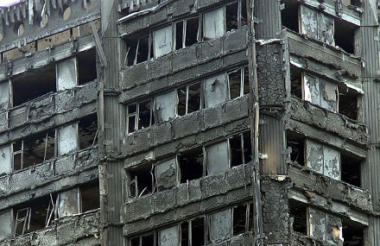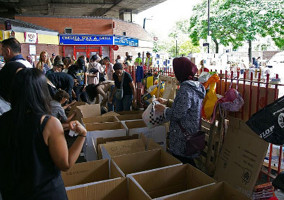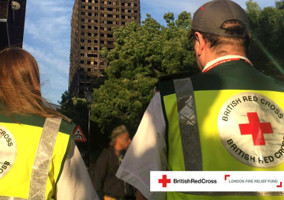Sue Tibballs reflects on some of the lessons learned from the Grenfell Tower disaster, and says that questions must also be asked of the charity sector.
As for many sat around a dining table in recent weeks, the conversation in our Better Way network at a recent cell dinner was about Grenfell. In the six short weeks since, this terrible event has already revealed a wide range of shortcomings that go far beyond the quality of social housing and regulation.
The survivors and local community - through the most awful of circumstances - are holding a lot of power. What do they have the potential to change?
I shared a conversation I had with a funding body involved in distributing some of the funds to the community around the Tower. They told me how local people were coming to their door – physically – to ask how these funding decisions were being made.
They want a level of transparency and accountability that funders, frankly, are not used to. But as the funder acknowledged, given the glare of public attention, they are going to have to tell them. Grenfell could force more public accountability from funders.
Questions for the central and local government
We talked about the local authority and its poor performance. Why did it find it so hard to behave in a simply humane way? Was this just the failing of the now ousted leader? Well, he certainly seemed to lack the courage to lead. To have hidden behind the lawyers rather than stepping up and standing up for his community was astonishing to behold.
A bunker mentality if ever there was one. But his behaviour, we felt, reflected on the whole organisation. At best, a culture defined by risk and resource management. At worst, a culture defined by contempt for its citizens (or at least some of them) and based on a belief that the poorest have nothing to offer.
Not all local authorities hold a similar mind set. But for those that do – like Kensington and Chelsea - Grenfell raises questions about the culture and practice of our public institutions and whether they are fit for purpose.
And central government has difficult questions to answer as well, not least about the decades of policy failure – incompetence at best, and sheer callousness at worst - which have resulted in the housing of many thousands of the poorest and most vulnerable families across the country in tower blocks which were known to be unsafe, ever since Community Links and the Tower Blocks Tenants Campaign highlighted the problem back in the 1980s.
Why weren’t charities on the front foot?
Sadly, a shadow also falls on the voluntary sector too. Yes, of course there was a tremendous human response from individuals, rich and poor, in the surrounding area and far beyond, who just wanted to do what they could to help.
But why hadn’t local charities taken up the cause of the Grenfell residents when their warnings fell on deaf ears – were they simply not trusted or seen as relevant by the residents?
And where were the leading national charities in the immediate aftermath of the fire? Why weren’t they on the front foot asking questions and making the links with national housing policy and the wider political context.
Much of the focus has been on Shelter who have been criticised for not making public comment. Is this connected to the chair and trustee who stood down very quickly because one is a former CEO of Kensington & Chelsea and the other a shareholder in the cladding company?
It is hard to draw a direct line and there is no allegation of wrongdoing. But it raises questions about what this charity exists to do and who it serves. At least we know that Polly Neate, our Better Way colleague, who has just taken over as Shelter chief executive, will be determined to find the best possible answers to these questions.
Critical moment
We also talked about what should happen to the site itself? Should this become some sort of memorial? Or a new genuinely community-owned social housing scheme? Our conclusion was that the future implications of Grenfell go way beyond the actual site.
Grenfell has revealed a very wide range of uncomfortable truths that have the potential to force quite profound change. These critical moments don’t come around very often.
All of us who believe in A Better Way need to think about what we can do to help ensure this wholly avoidable loss of life leads to significant change that extends far beyond those directly affected. This, it seemed to us, would be the most fitting memorial to those who died or who lost family and friends.
Sue Tibballs is chief executive of the Sheila McKechnie Foundation and a member of the Better Way network
Related articles












